In the Studio: Lucy
The Stroboscopic Artefacts label head opens up about his production techniques—and his innate need to create.
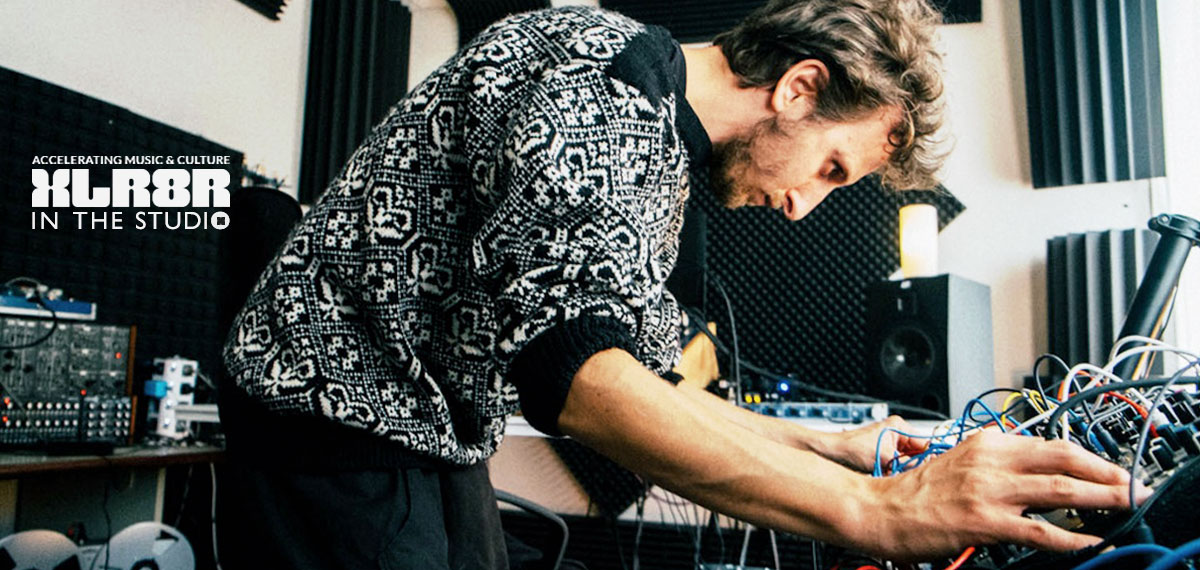
In the Studio: Lucy
The Stroboscopic Artefacts label head opens up about his production techniques—and his innate need to create.

Italian-born Berlin-based Luca Mortellaro (a.k.a. Lucy) is a stalwart of the modern techno scene. His productions, many of which are released through his flowering Stroboscopic Artefacts imprint, drift between those made to make people dance and those that serve as more experimental, ambient works—as captured beautifully on his 2011 debut LP, Wordplay for Working Bees. But while many artists become captives to the glamor that success in music can bring, Lucy’s motivations remain pure and untarnished by celebrity; for him, music is is an utter necessity for his contentment, a fundamental tool of his self-expression that allows him to to prosper. After spending time in his Berlin studio, this last point became very apparent.
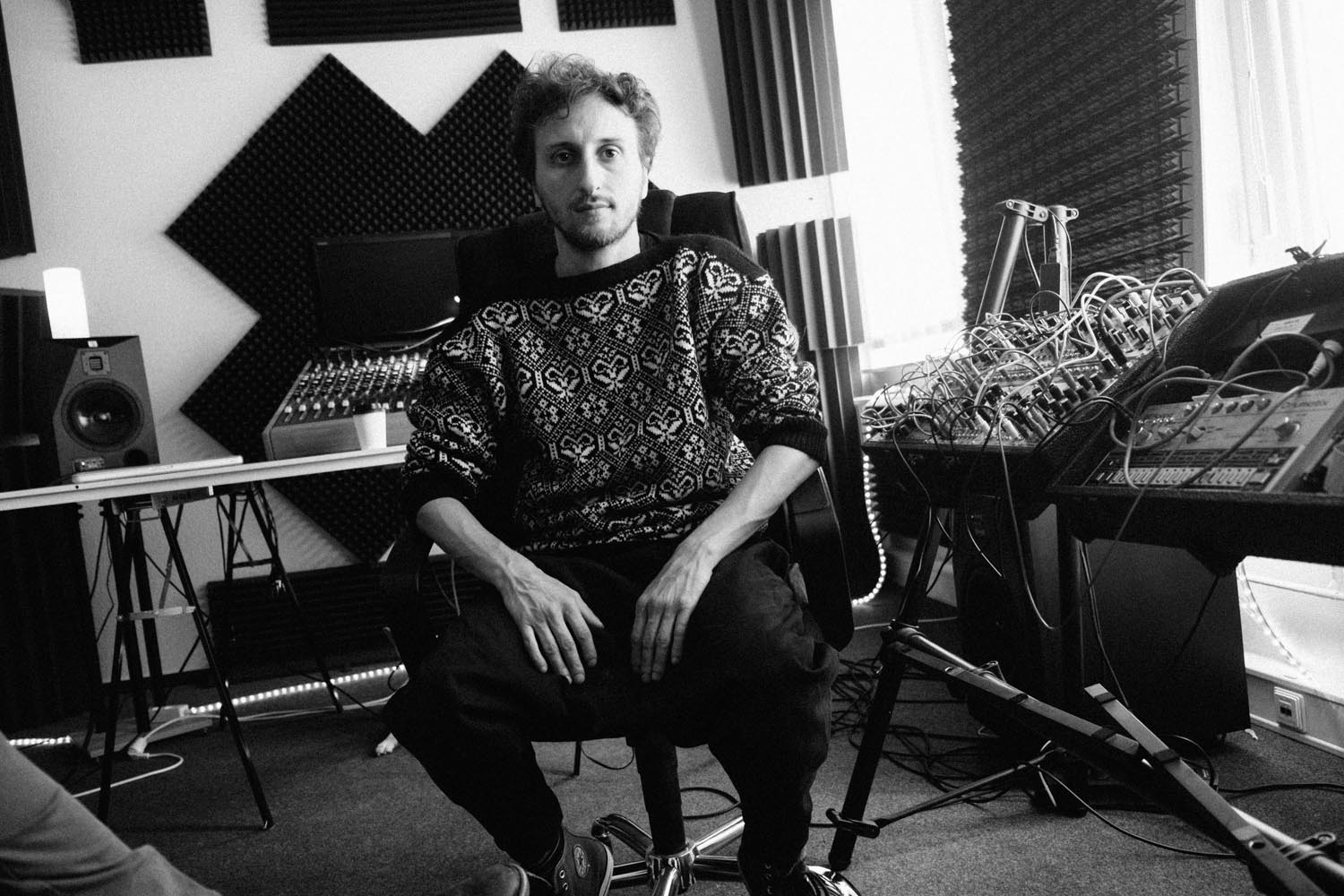
Can you remember when you first started making music?
I was around 15 years old. I was at high school, living in Palermo and I started doing very experimental and ambient stuff. I didn’t get in touch with the dancefloor world until way, way later. It started in a funny way because there was only one record shop where you could buy weird stuff. In this shop where I was buying all my vinyls, they had some old Roland machines set up, like a 303, 808 and an SH-101, so you could just play around in the shop, having fun. At the beginning I was just messing around, getting into it, and then one day the record shop owner offered me the vinyl of the record that made me what I am artistically today: Selected Ambient Works by Aphex Twin. It was amazing because I could hear these machines being used in a way that was completely out of this world, and I just realized that this might be a good way for me to express myself on a deeper level.
Then, when I was living in Tuscany after I had moved to go to university, I met this guy who was one of the most brilliant production minds I have ever met. He was born in a commune in Tuscany and played his crazy live act at lots of illegal raves with mountains of synths but, by philosophy, he never wanted to release anything—he was even approached by Rephlex! It was so fascinating, just how uncompromising he was with the music business. I even contacted him ten, eleven years later when I opened up Stroboscopic Artefacts—and he still didn’t want to release anything.
One day, I went to his house in the countryside close to Sienna, and there he opened up my mind. I went there just for an afternoon and I ended up staying for five days, almost without sleep, just playing around with stuff and recording on cassette tapes —t was completely intense. That was the moment I realized that this was the best way for me to express myself.
So your initial production was all analog?
Yes—my initial production was only on machines because I didn’t have a computer back then. We just had this massive family PC when I was a teenager, and that was it. It was all on machines, and I was slowly getting these machines, so we just met up and had some cool jamming sessions together.
And when did you start to acquire your own equipment?
Only quite recently, actually—only when I could afford it. It must have been about five or six years ago, when I started playing more gigs and I had the money to buy all the equipment that I already knew very well but didn’t actually have on my own. For me, it is a very slow process—every piece of equipment that comes into my studio is for a reason. I don’t just put stuff in here that will stay in a corner; I have to be sure I need it, instead of just trying out stuff. So it takes a while for me to add something new. It has to really be the right thing.
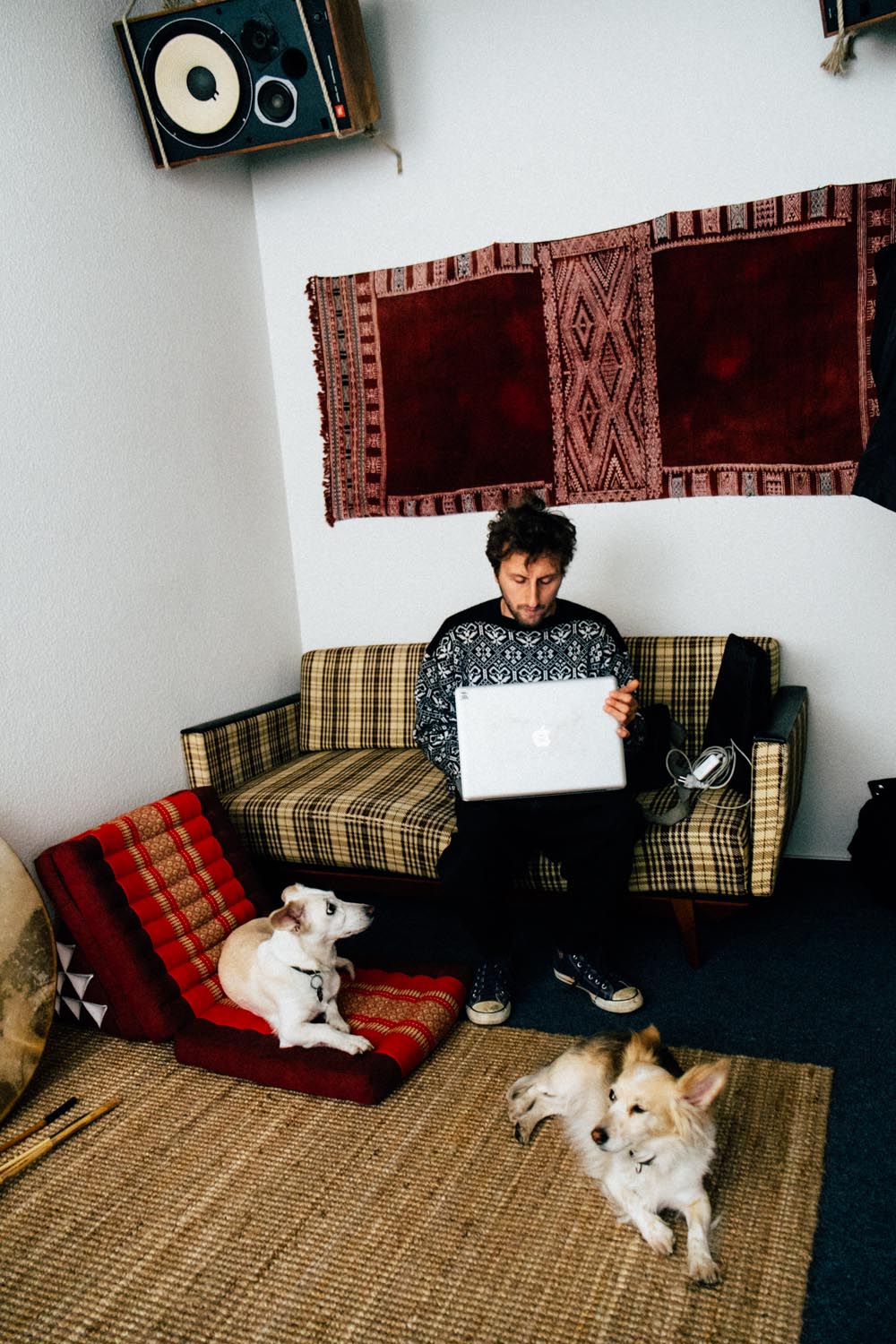
So you had no studio when you were living in Paris in 2005?
No, I had a home studio. I was just with three friends and none of us had any money. Through working at restaurants and stuff, we managed to buy one 808 between all of us. We started playing with it and we had a few friends who lend us equipment now and then, and that was it. We were sampling it and giving it back. At the same time, and even before Paris when I was in Palermo, I also had slowly started using a laptop. I quickly realized how flexible this can be.
Looking back at it now, it was very intuitive. At that time, there was just a flow of things that happened but there was no specific agenda. I didn’t even know that my life would be in the music until about five years ago.
So when did you move into this studio?
I moved into here three years ago.
And how did you choose this one specifically?
That’s very interesting! To be honest, it is all to do with the general Berlin feel. Over the years, I have started to move more and more into the periphery of Berlin because I just do not like it when things get too professional or too high end. When I moved to Berlin, I was living in Kreuzberg and I saw that people with very established businesses were starting to find studios around those areas. Aat some point, I was missing the place that I had come from…like random people trying out shit! Then when I saw this place, it was almost empty at the start—but I understood what the intention was, and I like it. It can get very dirty, and I have seen some pretty hardcore scenes on the stairs; it is the kind of world that I do not feel part of, but it is where I feel most comfortable.
“It can get very dirty, and I have seen some pretty hardcore scenes on the stairs, but it is kind of world that I do not feel part of but it is where I feel most comfortable.”
Do you feel that having a studio separate from your own home affects the creative process of your music?
Yes. I had a home studio for a long time until music became my profession. When it became my profession, it became very important for me to completely separate it from my private life. When your work has something to do with artistic expression, and when it is so personal, everything can become confused very quickly—which is a treasure on one side, but if you allow it to go too much into your private life it can become very messy.
For me making music is not an innocent or funny process. I wouldn’t describe making music as fun. It is something I have to do. It is a must. I have to make music otherwise I really freak out. I can feel the energies inside me going in wild and dark directions, so I need to put that bubble outside of me. Producing music is a very soothing and cathartic process. I have to take these bad energies out of me and give it an artistic shape. I can then observe it; I can look at it, but it isn’t inside me any more.
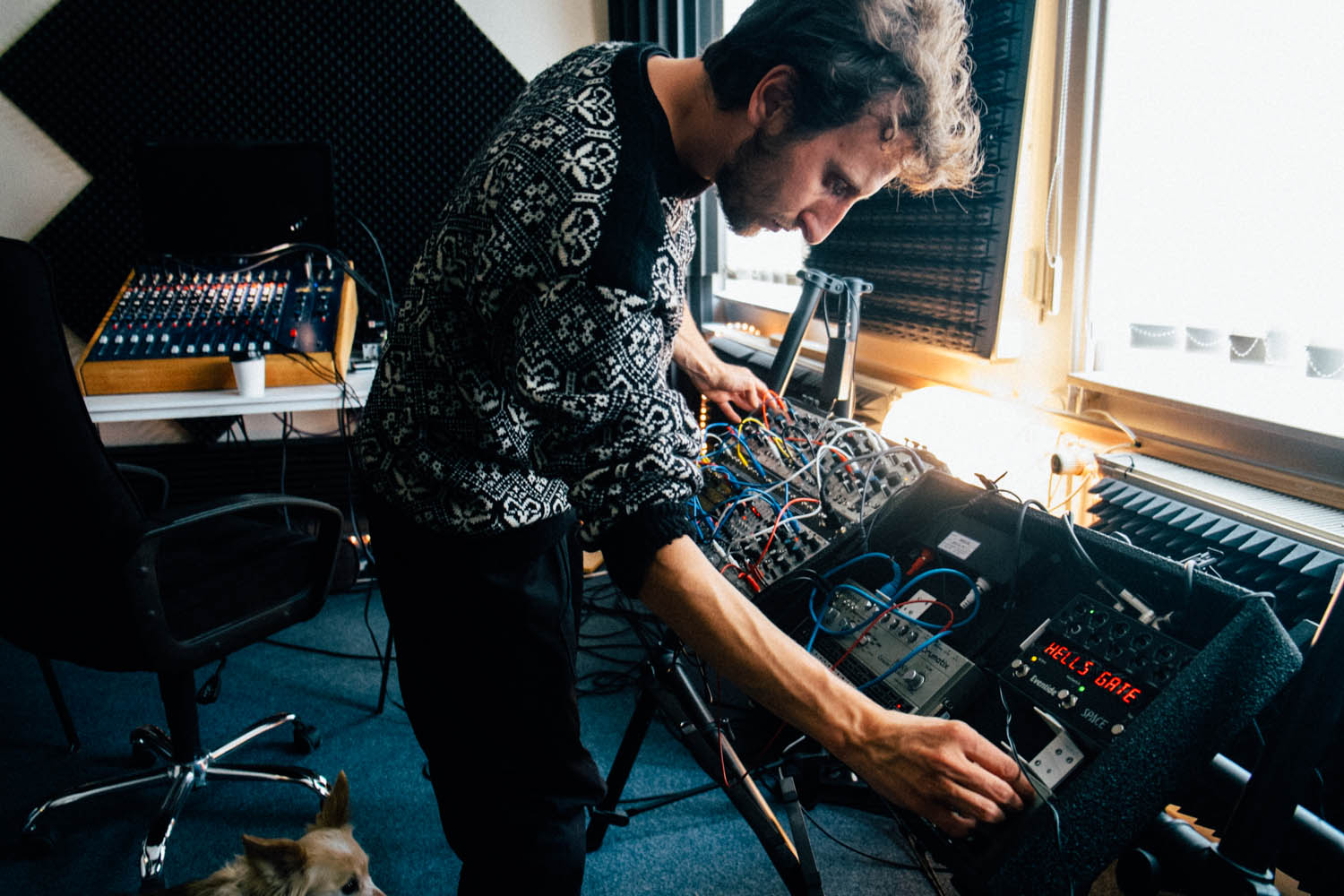
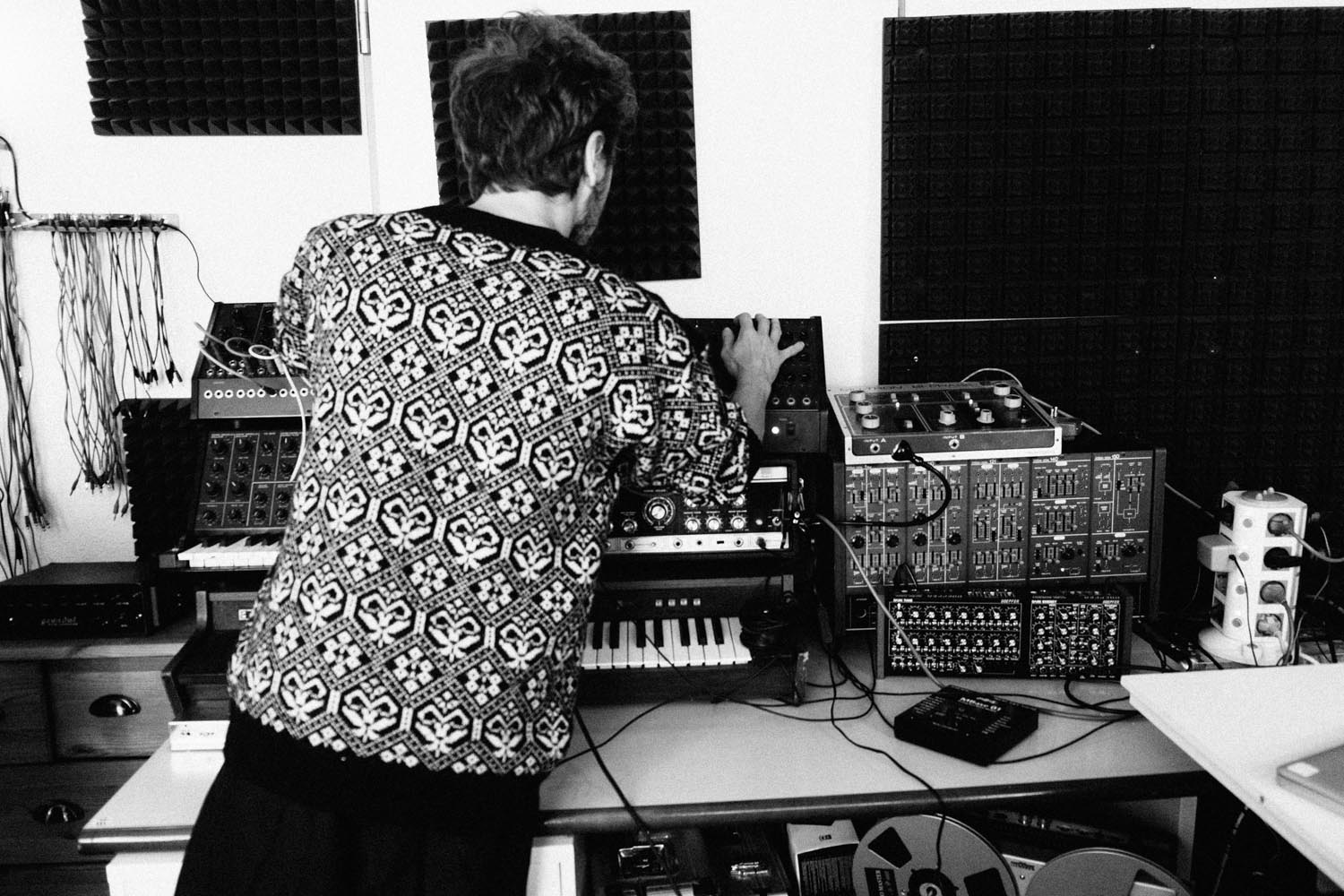
How you maintain this divide? Is it very much work inside the studio and then fun outside of it, or does the production process go around the clock?
I certainly don’t forget about music when I go out the studio. I have a love-hate relationship with music and art in general. Before making music full-time, my main activity was writing and before that I was painting. I have always had the same kind of relationship with art: Sometimes I can find meaning and I immediately feel like I know why I am in this world, and what I am doing here. Other times my art feels like it is destroying me. I will sit there after a really emotionally-draining session and I will just want to close the door and try to go out, relax and do something completely different to turn off the mind.
“For me making music is not an innocent or funny process. I wouldn’t describe making music as fun – it is something I have to do. It is a must.”
Do you approach your recording sessions like a nine-to-five job?
Certainly not. Going to the studio will fuck up all my plans. Sometimes I will even try to avoid going to the studio even when I feel like I should. But I will feel this thing growing inside me and when I really cannot hold it anymore I will run here to the studio and I am way more effective than I normally would be. It’s because this urgency becomes so strong that when I step in the studio, it all happens so quickly. For me, it is important that I keep a distance between what is going on emotionally and what is happening sonically as short as possible, because every second wasted is a loss.
So do you never produce at home, even when you have an inspiration?
No. Never. This is something I completely avoid. I do not produce at home; I do not produce when I am traveling, even if I could with a laptop. For me, it has to be a sacred space where I know that when I step in my mindset is on producing music only.
“For me, it is important that I keep a distance between what is going on emotionally and what is happening sonically as short as possible, because every second wasted is a loss.”
If you talk with a lot of producers nowadays and lots of them will produce sketches on the road, even if they take them back to the studio to complete them.
Yes. It’s very strange. I have had this discussion many times. People will often ask me why I am stressing over deadlines for this and that, and they will tell me to just do it on my laptop. I always tell them that I probably could—but I also can’t, because I know the result is something that would not be satisfying for me.
In terms of making your music, just how much of it is organic versus the computer?
Digital is still very important for me, mainly for like final arrangements and being precise in the final structure of a song. But the source of sound and most of the modulation sources are analog things.
And what software do you use?
I use Ableton as a final sequencer for main song arrangements and, in a way to mix down.
Even though Logic is the more studio-friendly software?
If I didn’t use an external mixer to make final mixdowns, which normally I record on tapes, then I would use Logic because the sound is far more accurate, precise and spacious. But if you are looking for headroom and if you are using an external mixer, then Ableton is a lot better than Logic. I can use the flexibility of Ableton without needing to compromise the sound quality.
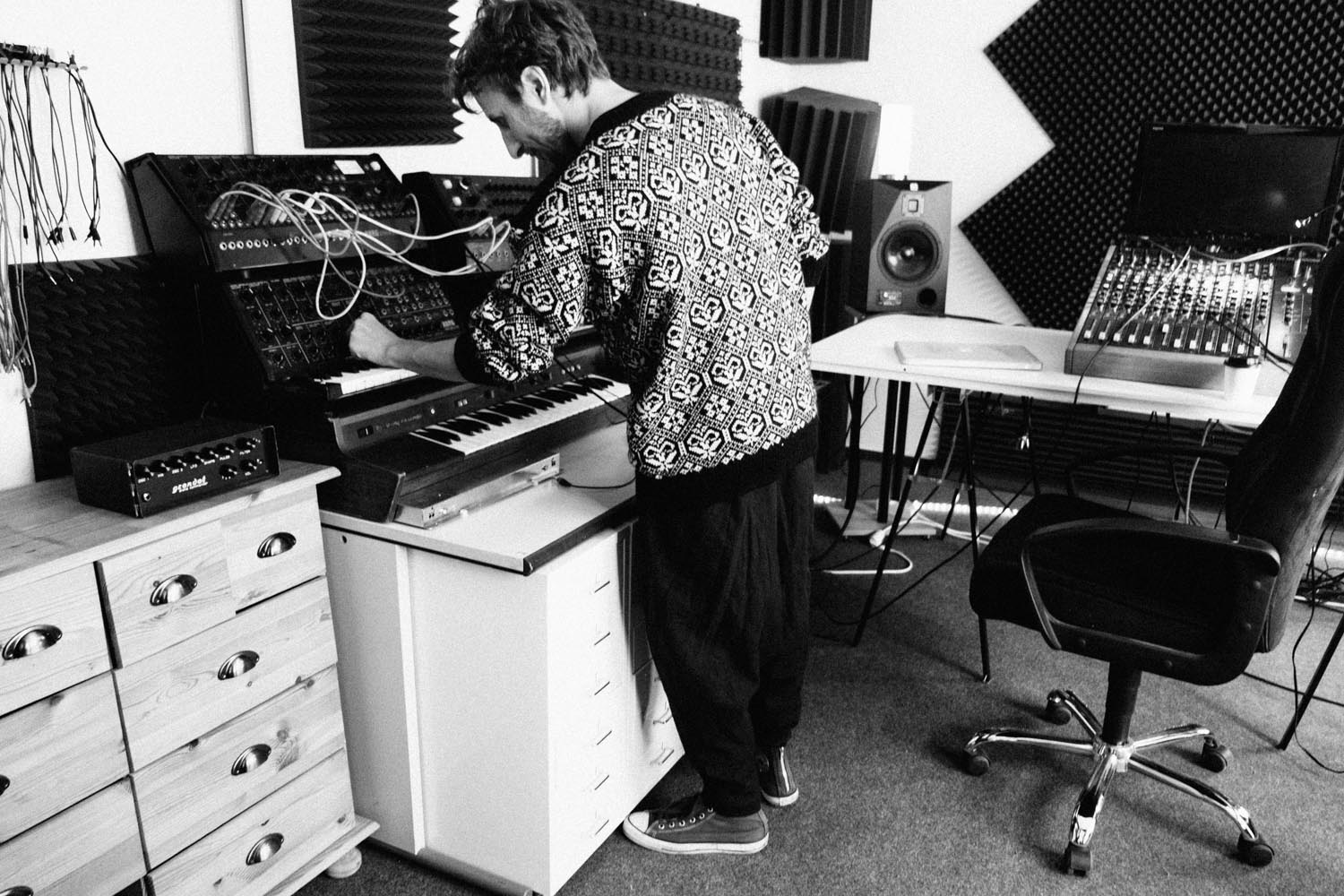
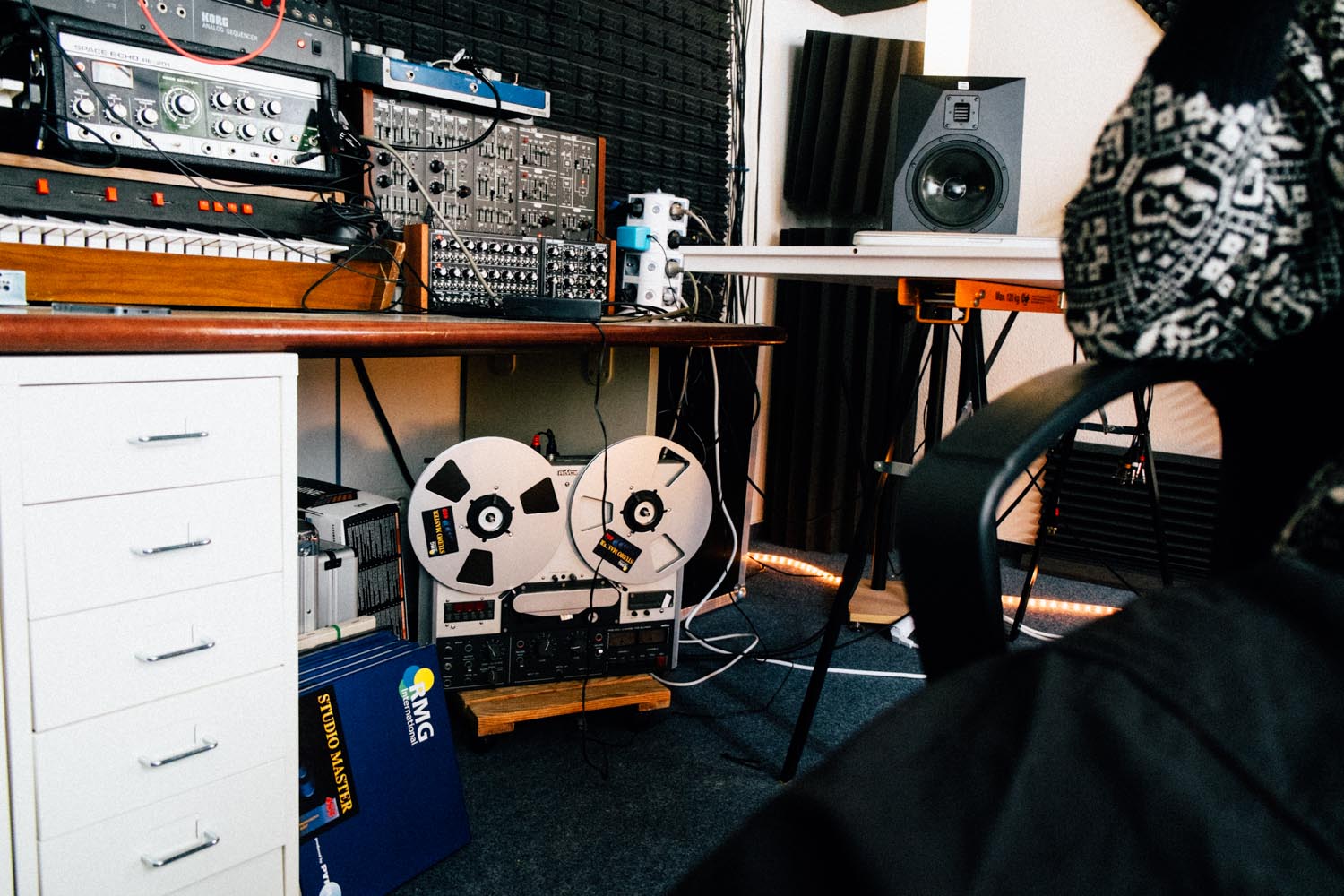
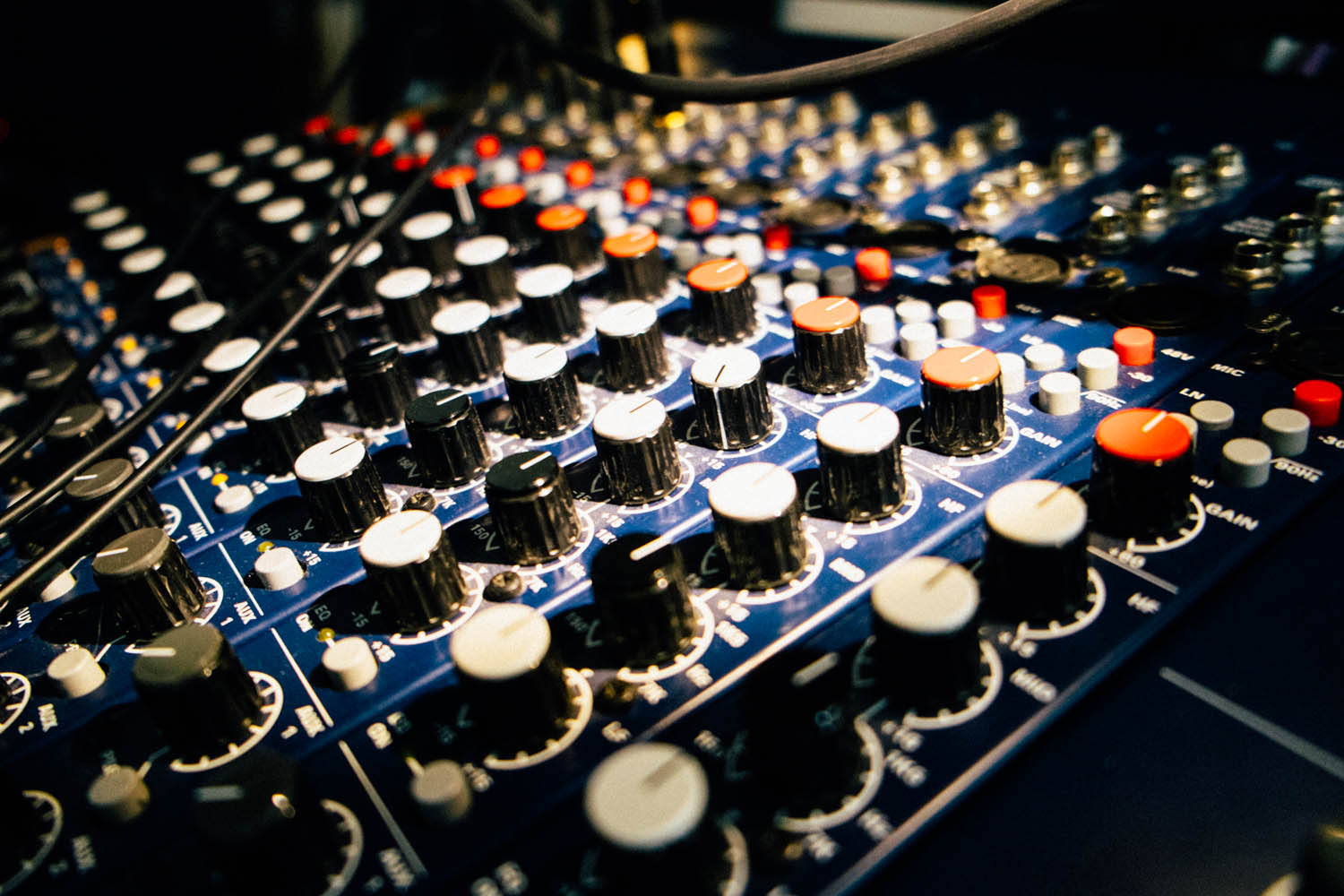
Talk me through the production technique of a track. Would you say that tracks are normally conceptualized prior to writing and recording, or are they a result of spontaneous jamming and random ideas?
I don’t really work track-by-track. My library of projects is constantly moving and evolving: I have about 15 projects which I am working on at the same time. I record a little bit there, a little bit here and then at some point some elements begin to resonate and that is when I begin finalizing a track, or an EP, or an album. I just don’t work on a track-by-track basis, unless it is a remix—then I focus on what I have. But for my own productions, it’s like I am working on this large palette of soundscapes which I gradually refine and filter until the moment when it nearly complete.
What forms the basis of each project?
It’s always the synths. I always start just literally plugging cables, trying out stuff and starting to understand the mood. I play with some sequencers, some tempos and intersections, and then I start adding in effects, even as a kind of sound source…because that’s what I like to do. Sometimes I will use them as a delay—or even as an instrument, like Lee “Scratch” Perry. So that’s how it starts, and then I start recording these sessions. At the end, often in other sessions when I am more in the mood of not going to the sound source, I just play with these recordings to see what I can get out of them.
“The less you pollute that natural expression of yourself, the more sincere the result will be to you.”
Would you say that the unpredictability of the gear leads to some surprises in your music?
That’s the beauty of it. When you approach it from an external point of view, it looks like I have no idea what I am doing—and in the end, I just have some strange sounds. But actually when you look at it carefully, you actually realize that it is not that way. It is not complete unpredictability; it is more like a game of probability, because in the end you will shape the sounds in a way that is very yours, even if there is a range of unpredictability as to how that sound will be. That range of unpredictability is limited because, even subconsciously, you limit, sculpt and direct these sounds in a certain direction and not in another. In the end, the more you do it in an uncompromising way—meaning in a way that is true to yourself and not to the music business—the more you will feel just how tight someone’s artistic integrity will be. That’s just how it is, because it is true and sincere. The less you pollute that natural expression of yourself, the more sincere the result will be to you.
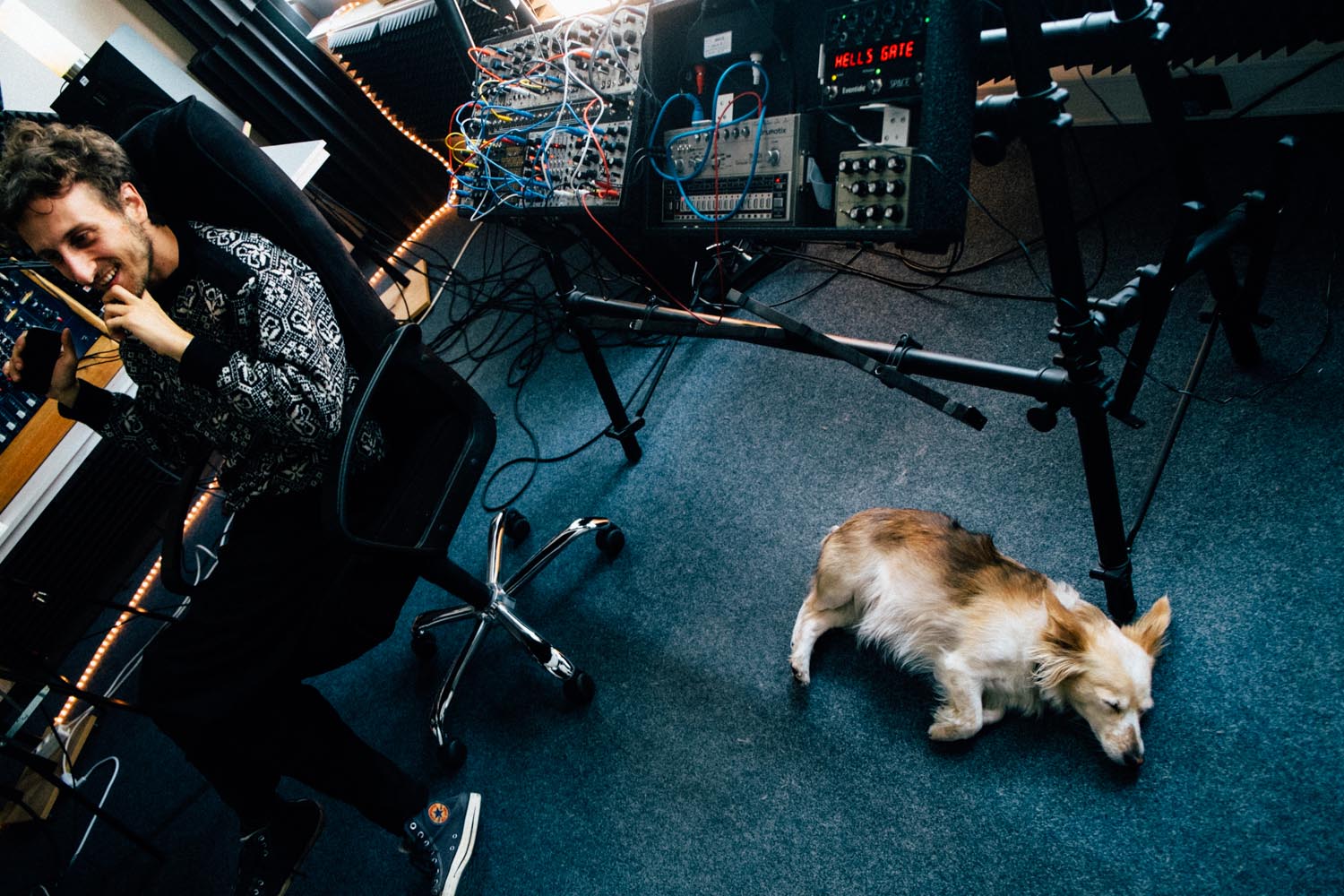
My old masters, like the early Aphex Twin and Lee “Scratch” Perry, taught me that from just one basic piece of equipment, like an oscillator, you really can do a lot. Sometimes the less you have, the more you are pushed to really get something different out of it.
It really is a relationship between the machines. It is not just me directing the orchestra; it is the orchestra driving me where to go. And, for me, this is the richness. If it wasn’t this way it would be boring to just obtain exactly what you wanted to obtain. It’s beautiful—and mistakes, like unpredictable modulations, are really the base for me. These mistakes are the projects that become releases and that I filter out from the rest.
“It really is a relationship between the machines. It is not just me directing the orchestra; it is the orchestra driving me where to go.”
Talk me through the production process for your albums, Wordplay for Working Bees and Churches Schools and Guns. Did you intend to produce an album each time?
No. It was the same palette system I mentioned. The first album was very different from the second one. In the first one there were elements that I produced when I was 15 and so I had a huge amount of material. For the second one, after the first one which was such a creative effort, I felt really dry for a while. I had a need to restart, like I wanted to do a full stop—and start again from scratch. So the second album was elements and things that happened in those three years after the first album, tracks and versions of tracks that I had never released, and all that kind of stuff with new productions. At some point, all those elements began to make sense together and I could see from the sheer size of it that it was going to be an album. There was just a lot of material and it just started to make sense as an album.
After that, the more lucid mind came into play, because an album is an important statement for an artist so I had to think about structuring it in the right way. That’s where other important impulses come in. It is in these moments where I feel the power of the art, where I feel crazy rage or crazy depression. Those are feelings that are very important for my musical processes.
Are you very critical with your productions?
No. I am quite immune to any kind of external critics, as long as I know that the music makes sense. If it doesn’t, then I know that it doesn’t and it was a mistake to release it. Other times I find that the most controversial releases I did, like the ones where my fan base is pissed, are the most important ones. They, for me, are the ones that shape your identity. This is me sacrificing a little bit of immediate glory to get what I want in the long term. I am not very critical because, in the end, if it becomes a release, then I know it made sense at that point.
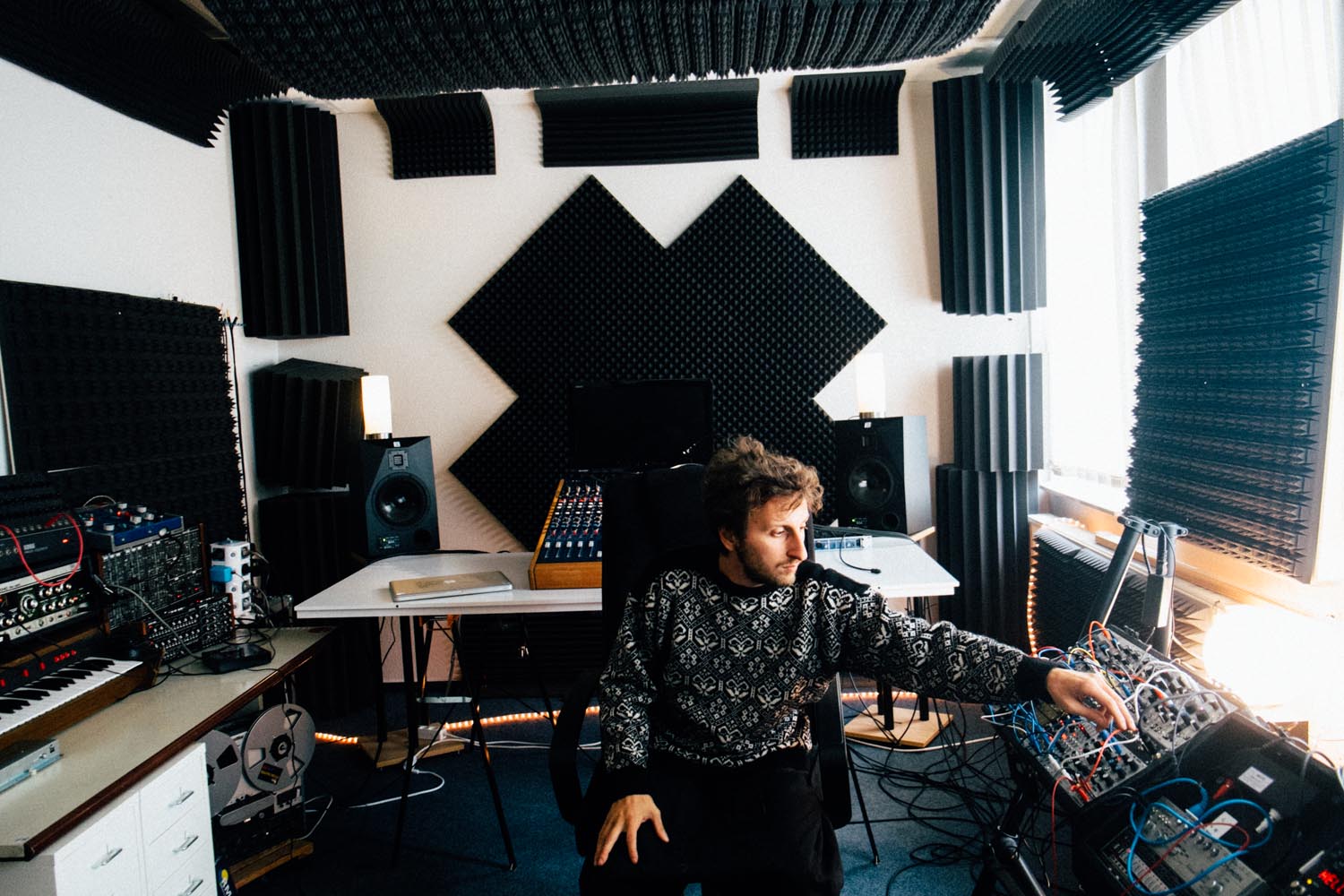
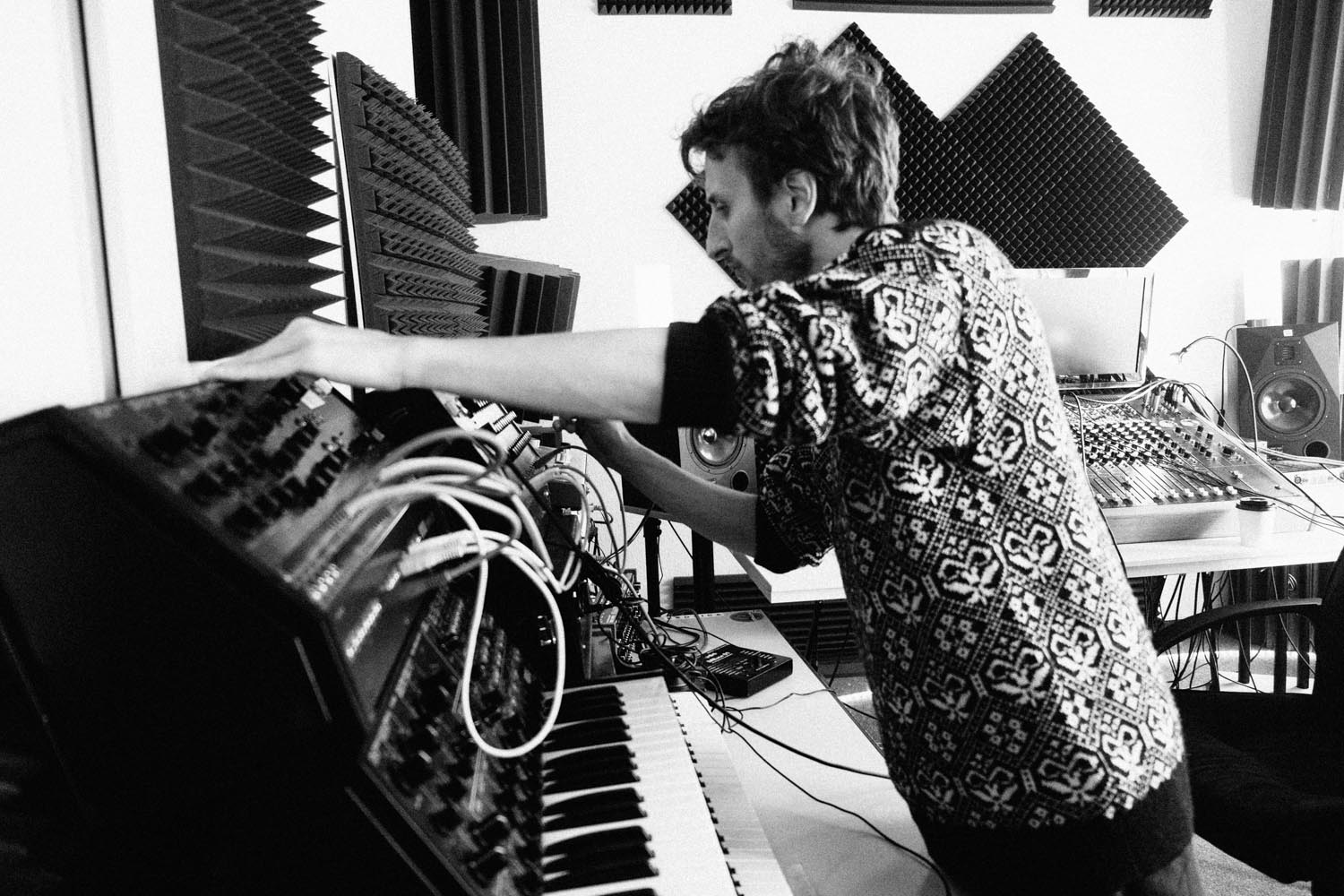
Do you ever suffer from production blocks?
Not a lot. But I know what production block is for me. After a major artistic effort, like my first album, then I really need to a break. Normally it doesn’t last more than four or five months. I feel like I am in a lucky position because I have one foot in dance music and one foot in abstract productions and that allows me refind freshness constantly, continually oscillating between the two. It’s important for me that I am not a monotone producer, and I have to be able to refresh my output by stepping into something completely different.
Do you show your tracks to someone before they are released?
Yes, I will show my friends. I actually love showing it to people who don’t know anything about electronic music, like who have never been in the club world at all, and don’t drink or do drugs. I even like showing it to elderly people. I think this is a really precious point of view.
One of my best friends is 56 years old now; he runs a bookshop in Italy. I was showing him this stuff and he said how powerful it was, but he simply said I should use fewer drums. It was the most basic shit, and that left me so inspired—so I decided to do a series of things to challenge myself to be compatible with the dance music world, but with a completely different approach. It was so precious in the end, and it really shaped the sound of the first album. As a result, I think there is only one or two tracks from the first album that you can play in a club—and the rest were completely abstract. And that wasn’t a time when completely abstract things were in fashion; it was a time when DJ albums were dancefloor albums, at least in techno, and it was so strange because I put it out without any expectation…and this was the time when my DJ career really grew. Techno clubs immediately became immensely interested in having me, despite my business card saying I was a completely different artist. This completely amazed me at the time.
How do you know when a track is done?
With final arrangements, I am very careful. All that intuitive volcano activity in my mind stops —it is like I am checking the final arrangements because it has to sound good. This final phase is really important and it becomes clear in my mind that the track is now complete.

